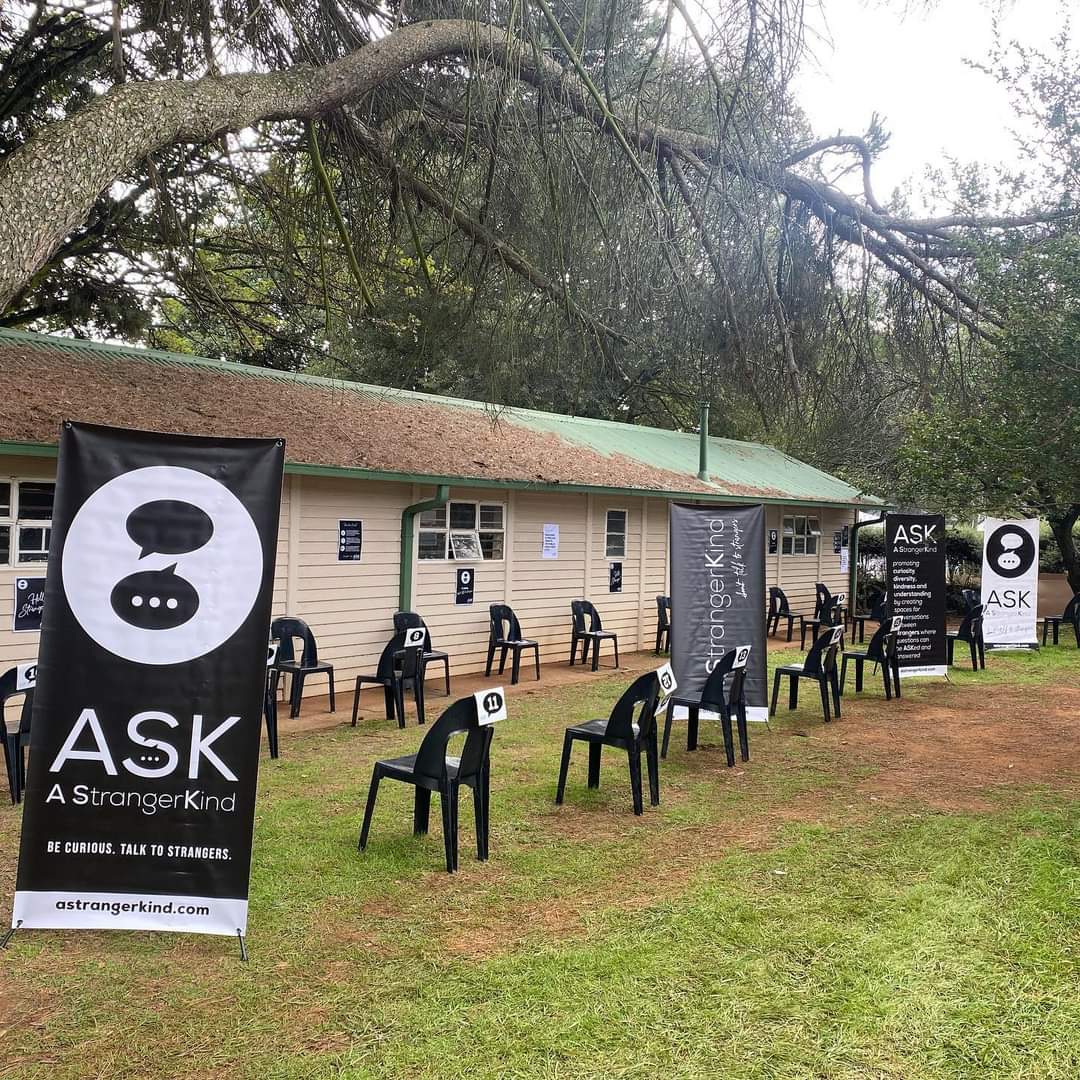Since adolescence, our parents, teachers and elders have warned us to be wary of strangers. Warnings were reinforced by multiple nursery rhymes and fairytales, such as the red riding hood, which tells that “Wolves may lurk in every guise”.
Though it needs to be taught to children not to talk or take anything from strangers, it does, however, affect our social development as we get older.
By not interacting with strangers, we leave room for assumptions, stereotypes and prejudice. Especially if we consider that once upon a time, our spouses, friends, neighbours and even work colleagues were once classified as “stranger danger”.
Eventually, we overcame the awkwardness, embarrassment and formalities once we became familiar. The process of conversation allowed us to filter through our differences straight through to our commonalities and shared experiences, which go beyond language, politics and ethnicities.
Yet this was still either a deliberate or chance encounter, meaning that it could or could not happen. But what if there was a way for us to interact with each other? Stranger to stranger, in a safe and controlled space?
A space where conversations are encouraged. Where we can meet people with different backgrounds and share our stories without the risk of offending anyone. The only purpose is to find community and commonality with our fellow South Africans.
Fortunately, many such initiatives drive change through sharing and conversation, such as A StrangerKind. But what makes this organisation different from the others?
Founder of A StrangerKind, Madi van Schalkwyk, spent years researching, collecting data and learning how best to apply such a bold initiative in a South African context.
Some of the organisation’s objectives are to create opportunities where unlikely people would meet and share their stories. To challenge the notion of not speaking to strangers and to promote a culture of empathy, curiosity and kindness. Moreover, to tap into our country’s rich and diverse history to build a sense of community.
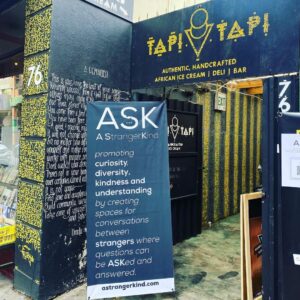
A banner with the orginsations values and objectives outside the venue which hosted the event.
“I discovered how we seldom have opportunities where we can connect with people that might be different to us. We are such a beautifully diverse nation, but we are scared our ignorance might be offensive or that we approach someone that is not ready to talk about something.”
Van Schalkwyk is aware that specific topics and conversations will reveal our biases. However, the aim is merely to create “a starting point for connection”.
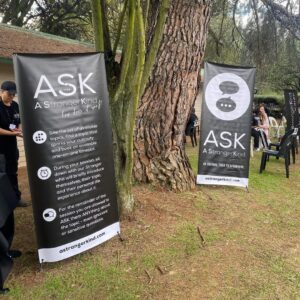
Volunteers preparing for an event by setting up seats and banners with instructions.
What is A StrangerKind?
A StrangerKind is an organisation which hosts free and public ASK events. At these events, the general public can choose from various subjects such as occupations, mental and physical impairments, sexual orientation, religion, and so much more. All to learn and overcome our inclinations.
The person sits with a volunteer known as “the Stranger” organisation and engages in a conversation sharing stories about their lives with one another.
“It is incredible to see how South Africans engage with the concept. Even when people seem slightly cautious about taking part in their first conversation, most people immediately state how this is such a necessary space to offer and their longing for more connection.”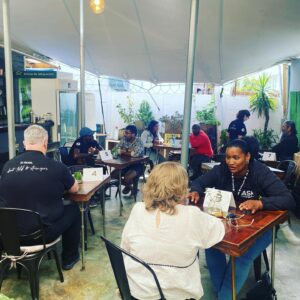
Van Schalkwyk said because some of the topics are quite difficult and sensitive, volunteers often think they need something interesting to share about themselves, which stops them from taking part altogether. However, the organisation wants people to interact, engage and talk about anything and everything, including “typical or uninteresting things about themselves too”.
SMread| DA Federal Congress outcome reignites race debate
Who Can Attend These Events?
“Anyone and everyone, really. Which is why we continue to introduce more topics to always have something that might appeal to someone who also wants to experience it depending on their level of comfort or interest.”
In the past year, A StrangerKind hosted several ASK events, training events, and workshops nationwide. The events were held in shopping centre’s, the workshops of local artisans and various universities.
In addition, they’ve trained approximately 40 more “Strangers” to accommodate the people attending and the number of topics discussed. And with many more events lined up across various provinces, the invitation extends to anyone who wants to participate.
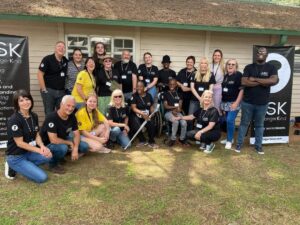
The volunteer’s aka Strangers, taking a group photo.
Van Schalkwyk encourages and invites collaborators to get in touch with the organisation so they may participate in and host the event. Through this, people can help promote the concept to their communities and social environments.
SMread| Creating an inclusive society for people with disabilities
“Overwhelmingly Positive”
The response from people after attending the events was “overwhelmingly positive”. Van Schalkwyk said people were surprised at how authentic and transparent people are when they feel safe enough to share. Moreover, people uncover and understand parts of themselves by discovering others through this process.
“They find shared experiences where they never thought there might be and a subtle shift within themselves to change the way they might engage with something similar the next time.”
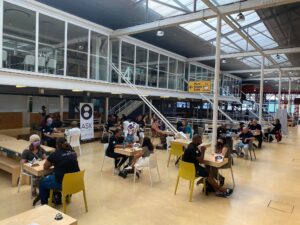
One of the multiple ASK events hosted nationwide.
Such initiatives are essential to a diverse and multicultural country like South Africa. As far as we’ve come in terms of our history, there are still many issues wrinkling our nation’s multicoloured tie-dyed t-shirt, which needs ironing out.
The only way to overcome these issues is to engage in meaningful conversations, interact with one another in our social environments and share our cultures. We are connected through our history, language, food and values. Perhaps those commonalities need to become more apparent than our differences.
